The University of California, Irvine developed guidance “Identifying Faculty Contributions to Collaborative Scholarship” to help faculty describe and assess team science.
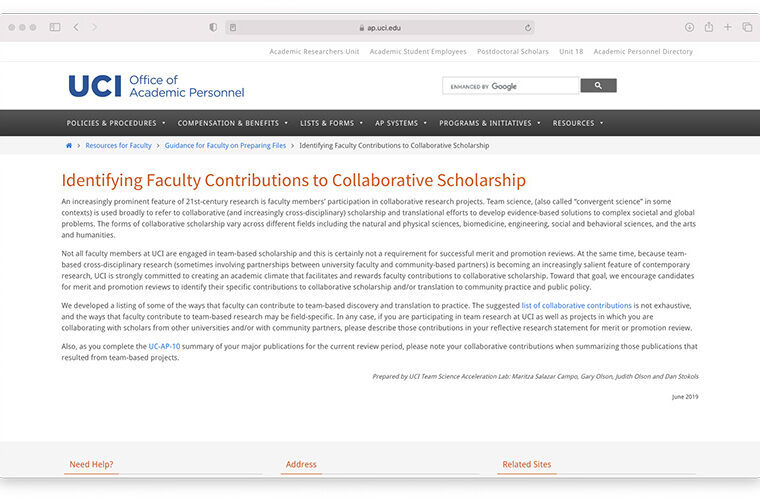

The University of California, Irvine developed guidance “Identifying Faculty Contributions to Collaborative Scholarship” to help faculty describe and assess team science.
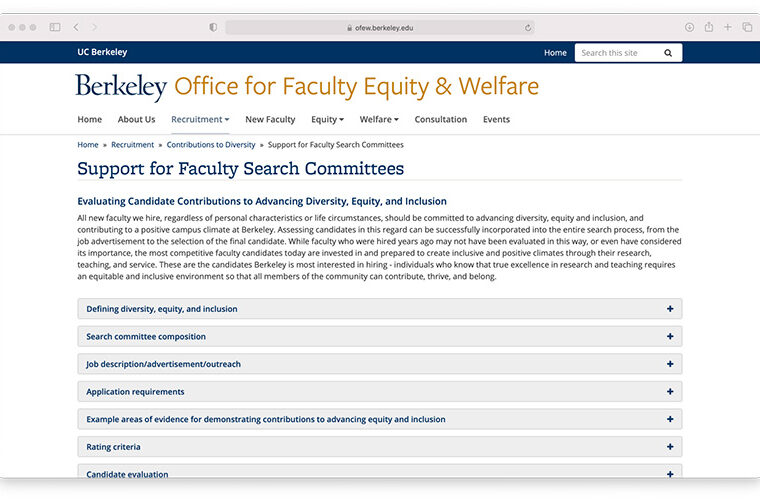
The Office for Faculty Equity & Welfare at the University of California, Berkeley provides support for faculty search committees to evaluate candidate contributions to advancing diversity, equity, and inclusion (DEI), including guidance for search committee composition, application requirements, rating criteria, and more.
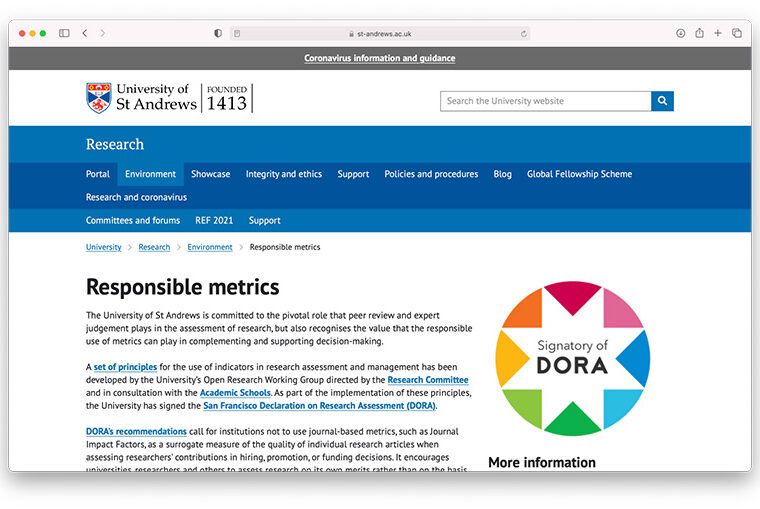
The Open Research Working Group on behalf of the Research Committee developed a set of five principles to guide the use of bibliometric indicators in research assessment, which include expertise, diversity, data, integrity, and transparency.
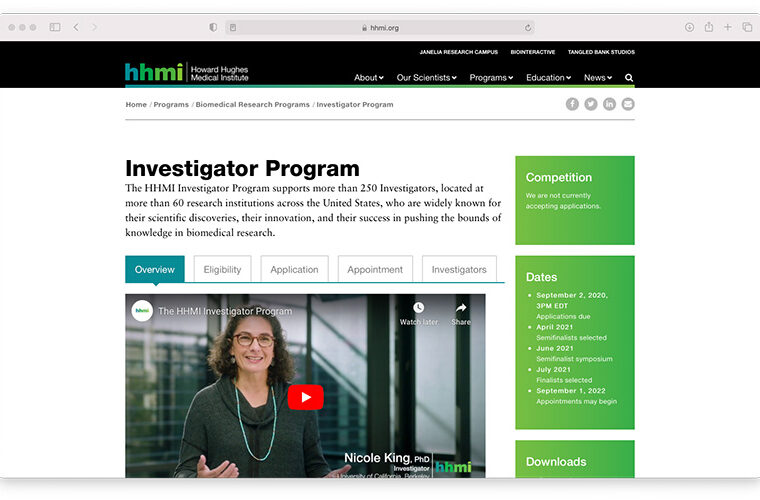
In keeping with HHMI’s commitment to basic scientific discovery, the Institute employs outstanding researchers for renewable seven-year terms as HHMI Investigators.
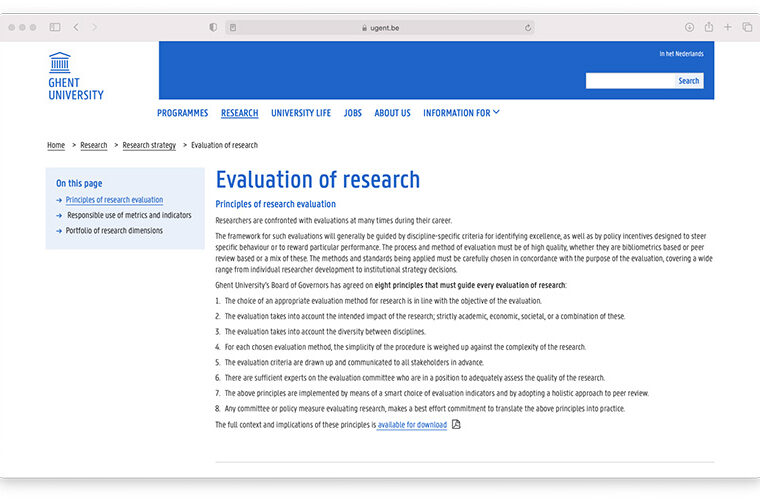
Ghent University published a vision statement for evaluating research based on eight principles agreed on by the University’s Board of Governors.
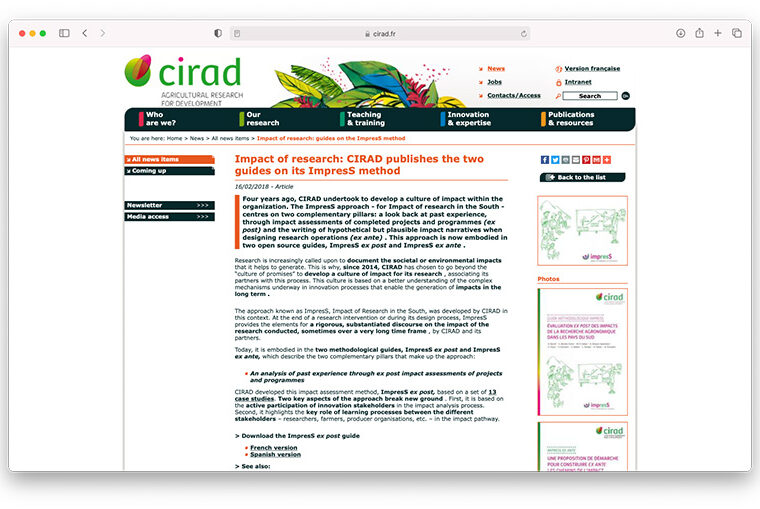
CIRAD developed the ImpresS method to assess the environmental and societal impact its research.
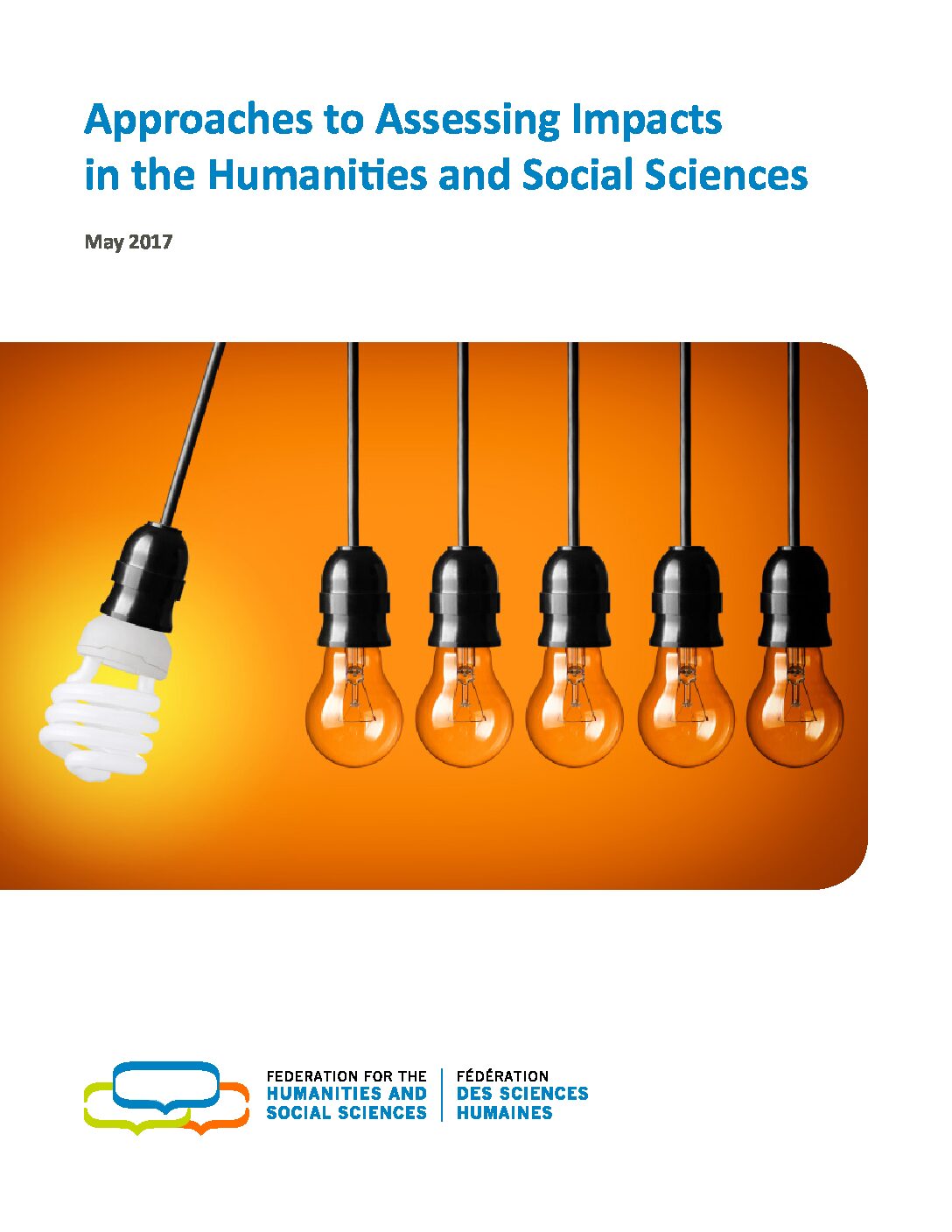
The Federation released a report in 2017 to support the ongoing conversation in Canada about the assessment of research impact in the Humanities and Social Sciences (HSS).
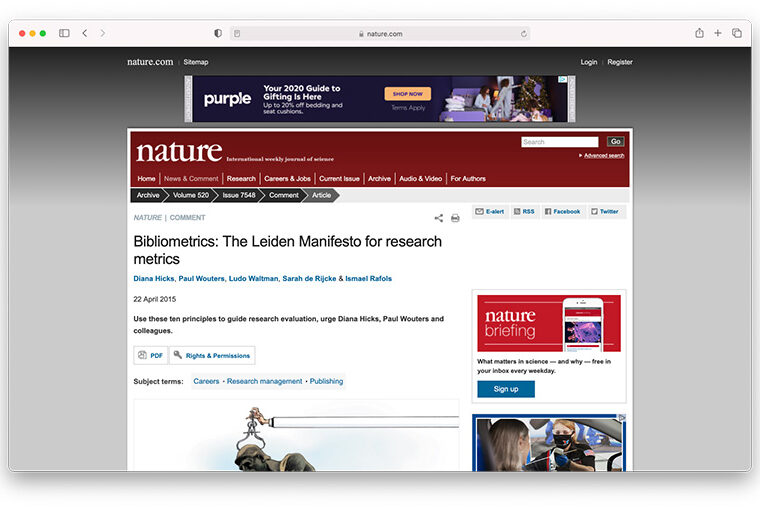
The Leiden Manifesto provides ten principles for the appropriate use of metrics in research evaluation.
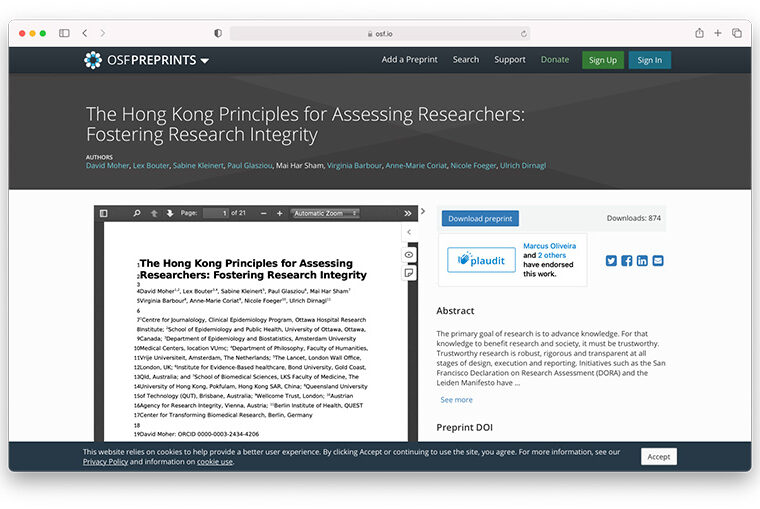
Institutions and funders can use the Hong Kong Principles to reward and recognize scholars for behavior that contributes to trustworthy research.
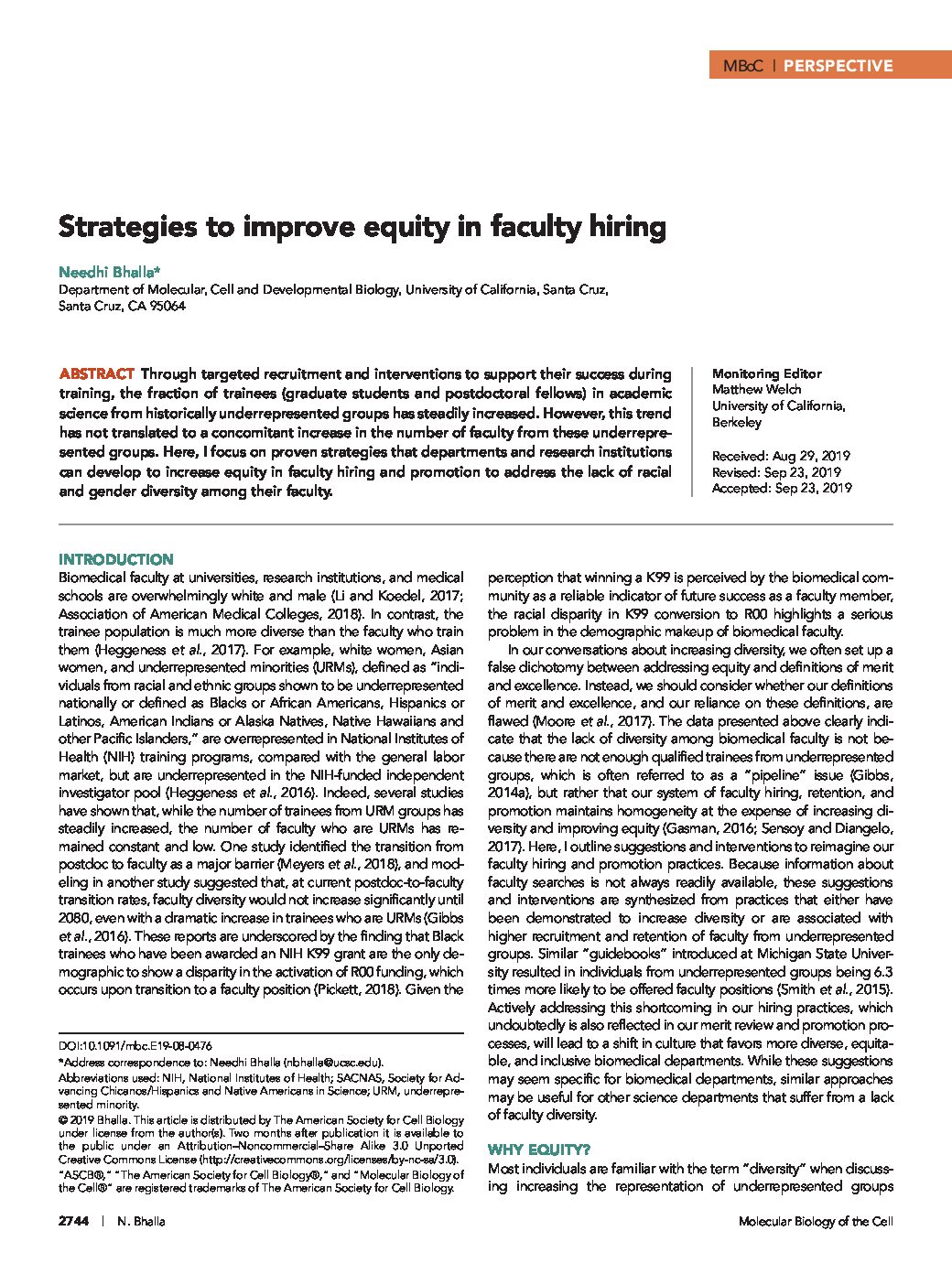
Despite the increasing number of underrepresented minorities in trainee positions, the number of underrepresented faculty members in academic science remains low.